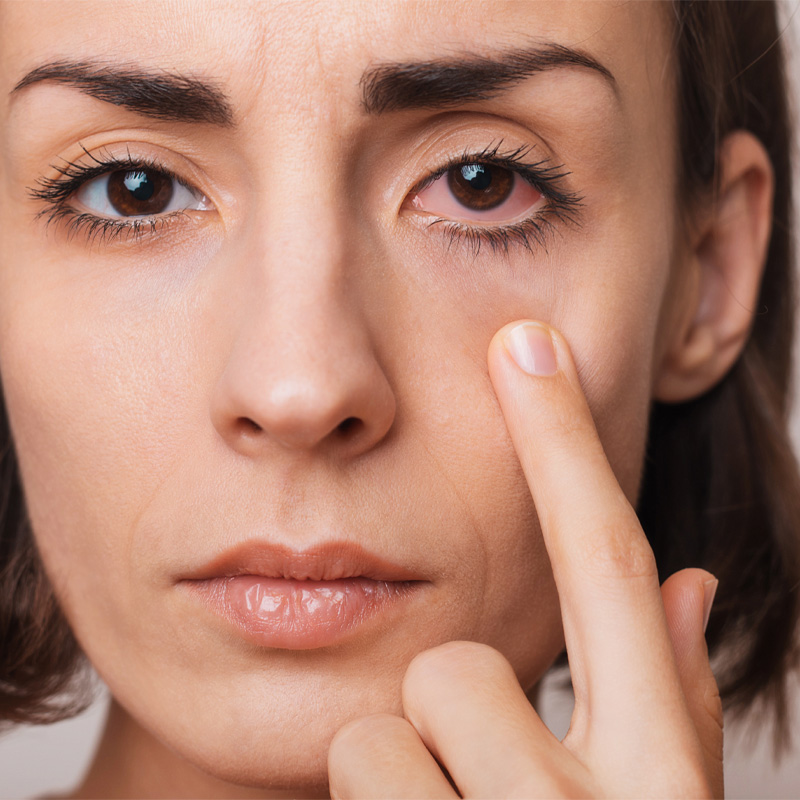Managing OcularRosacea and Dry Eye
Ocular rosacea, a frequent companion of the skin condition rosacea, plagues many individuals, affecting over 50% of those with rosacea. Although there is no definitive cure, you don't have to suffer in silence. Our eye doctors can offer relief through medication and guidance on managing this condition best.

Recognizing Ocular Rosacea Symptoms At Southern Eyecare Associates, Norfolk
The symptoms of ocular rosacea often overlap with those of dry eye, making early diagnosis essential. If you suspect you might have ocular rosacea, watch out for:
- Burning, redness, itching, or excessive tearing of the eyes.
- A gritty or foreign body sensation in one or both eyes.
- Swollen and red eyelids.
- Blurred vision.
- Light sensitivity (photophobia).
- Recurring eye or eyelid infections, like blepharitis, conjunctivitis (pink eye), chalazia, or styes.
- Dilated small blood vessels on the white part of the eye (sclera).
What Causes Ocular Rosacea?
While the exact cause of ocular rosacea remains a mystery, researchers have discovered that approximately 85% of individuals with this condition exhibit blocked oil glands around the edges of their eyelids. When these glands become obstructed, they contribute to dryness, irritation, and swelling in the surrounding area. This can lead to crust formation on the eyelashes and persistent eye redness and itching.
Is There Treatment For Ocular Rosacea?
While you may not be able to cure ocular rosacea, you can typically manage it well with home care and medication. Treatment may involve applying warm, moist compresses to the eyelids and using antibiotics, eye drops, or ointments containing steroids to alleviate symptoms.
In severe cases, untreated ocular rosacea can lead to corneal damage or eyelid scarring, which may affect vision. To minimize flare-ups, follow these preventive measures:


Preventing Ocular Rosacea Flare-Ups
- Clean your eyelids at least twice daily using warm water or a doctor-recommended product to keep them clean.
- Do not use makeup during inflamed periods, as it can aggravate your eyes. If you wear makeup when not experiencing inflammation, opt for non-oily, fragrance-free options.
- Avoid wearing contact lenses during flare-ups.
- Steer clear of triggers that can worsen ocular rosacea, including alcoholic beverages and spicy foods, which tend to dilate blood vessels in the face.
Learn More About Ocular Rosacea
For further insights into ocular rosacea and its impact on dry eyes, reach out to The Dry Eye Center of Southern Eyecare Associates. We can help you prevent flare-ups and effectively manage ocular rosacea-induced dry eye.
